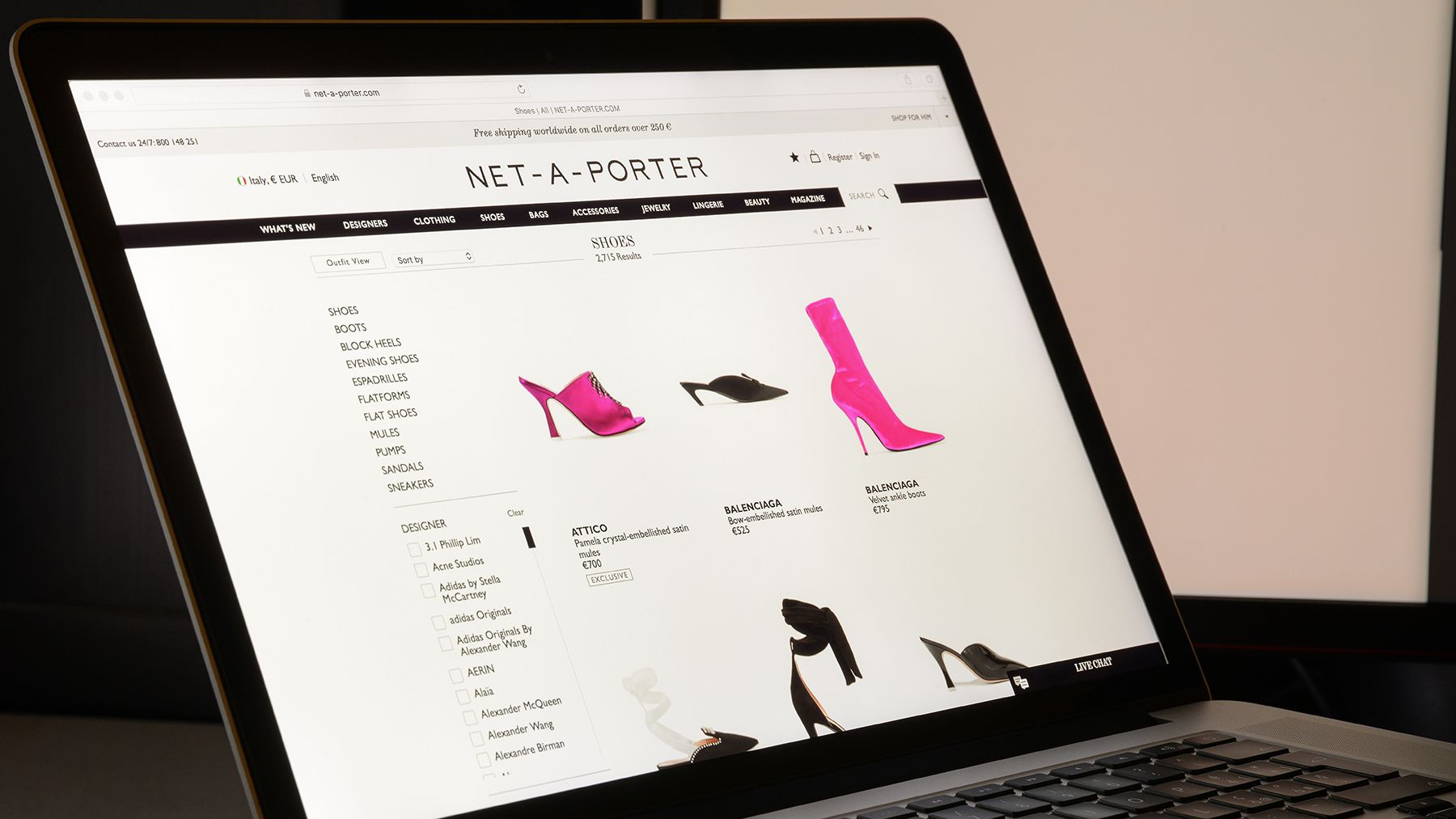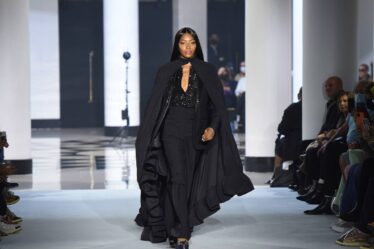
It’s been seven months since Farfetch announced it would acquire a 47.5 percent stake in rival Yoox Net-a-Porter from luxury goods group Richemont. The transaction is still on track to complete before the end of the year, a spokesperson for Farfetch told BoF. But amid a fast-shifting luxury e-commerce landscape, it appears the stakes have changed for the players involved — adding a new layer of urgency for things to go off without a hitch.
BoF breaks down what you need to know.
The complex deal announced in August is broken down into two stages, where, as a first step, Farfetch will acquire a 47.5 percent stake in YNAP from Richemont in exchange for company shares. Emirati business mogul Mohamed Alabbar will acquire a 3.2 percent stake, pushing Richemont’s own stake below 50 percent and leaving YNAP without a majority shareholder for the meantime. (The second phase of the deal lays out a path for Farfetch to acquire the rest of YNAP, but only if the loss-making company achieves profitability within three to five years.)
Currently, the first phase of the deal is going through regulatory approvals, with antitrust bodies investigating whether the transaction would hinder market competition — a standard procedure for companies of this size. Last month, it got the green light from UK watchdog The Competition and Markets Authority. But it could still be several months before all the necessary approvals are secured.
For Richemont, which is itching to get the loss-making e-tailer YNAP off its balance sheet, things have already started to look up. Until the deal is fully complete YNAP is expected to continue to drag on company results, Bernstein analyst Luca Solca said in a November note. Nevertheless, since the deal was announced, investor confidence in Richemont soared: over the past six months, the company’s share price has gained almost 60 percent.
The picture at Farfetch is more gloomy. Despite the broader luxury spending boom, company performance has lagged, with Farfetch struggling to navigate the consumer return to physical stores; challenges in Russia and China have also taken a toll. Since the deal announcement in August, Farfetch’s stock has plummeted, hitting an all time low in December after a strategy presentation to investors failed to assuage investor concerns the company had a plan to address persistent losses and its first drop in sales. Farfetch’s stock remains close to those levels now, falling about 75 percent over the last year.
“We believe this is the bitterest disappointment for investors willing to believe in the ‘Uber of luxury distribution’ vision presented at the IPO,” Solca wrote in a December note to clients following the event.
An executive shakeup earlier this year only added to the turbulence: In January, chief brand officer Holli Rogers and chief growth officer Martin Avetisyan exited the business, while CFO Elliot Jordan is set to step down by the end of the year.
In the three months through December, year-on-year sales at Farfetch declined for the second consecutive quarter, with gross merchandise value — a measure of goods primarily sold through its online marketplace — down almost 12 percent, and revenue falling 5 percent.
The ongoing process leaves YNAP in a sort of limbo: as part of the deal, it was agreed YNAP would get a new CEO and its brands would replatform to use Farfetch’s technology and logistics — a move that will “significantly enhance its prospects,” according to Richemont. But those changes can only move ahead once the transaction closes.
In the meantime, former president of Net-a-Porter, Mr Porter and The Outnet Alison Loehnis is serving as interim chief executive of YNAP, succeeding Richemont veteran Geoffroy Lefebvre who left the company in October. Under Loehnis’ leadership, the group has continued to pursue sustainable initiatives: Net-a-Porter launched a repairs service in the UK in February and is expanding its resale service to new global markets, while off-price platform Yoox, which is set to rebrand as a circular fashion destination, launched a pre-owned vertical on its site.
From a financial standpoint, Yoox Net-a-Porter continues to hemorrhage money — between April and September last year, its losses totalled €200 million, Richemont’s November results filing shows.
Still, sales momentum this year appears to be steady at flagship luxury brand Net-a-Porter, according to data from Earnest Research, which tracks US credit and debit card purchases. In North America, a vast and lucrative market that’s been a key growth driver for the luxury industry over the past two years, Net-a-Porter is pulling ahead of Farfetch, which is lagging peers and fast losing market share, Earnest Research data shows. Last month, Net-a-Porter’s estimated sales — up 5 percent year on year — were almost double that of Farfetch, where sales declined 26 percent year-on-year, said Michael Maloof, director at Earnest Research.
Net-a-Porter is also continuing to see a consistent level of monthly active users in the US; by contrast, Farfetch’s active monthly user base is declining, Earnest data shows.
“They [Farfetch] have clearly underperformed…most of the industry for the last 12 months,” said Maloof. “2021 was a great year. Stimulus cash in the US, lots of optimism: the rising tide lifted all boats. Now, people’s preferences are consolidating, and it just seems like Farfetch is losing out.”
Over the next five years, the luxury e-commerce market is expected to grow in the mid-teens, according to Bernstein, but Farfetch is forecasting its marketplace will grow at half that rate, demonstrating that, as Bernstein’s Solca put it, “the Farfetch ‘core business’ is not a good business.”
This deal could help boost Farfetch’s fortunes. The tie-up will provide Farfetch access to Net-a-Porter and Mr Porter’s deep well of loyal luxury clients, while also adding an additional $3 billion GMV to the Farfetch platform.
The arrival of highly coveted Richemont jewellery brands like Cartier to its marketplace should generate a much-needed traffic boost for Farfetch. Larger volumes could also help offset high investments in technology.
If regulatory approvals are confirmed and the transaction closes before the end of this year as planned, Farfetch will need to get to work fast turning around YNAP, starting with the replatforming of Net-a-Porter, Mr Porter and the Outnet to its technology and logistics systems.
The stakes are high: Farfetch won’t be able to absorb heavy losses from YNAP the way Richemont did for years, as the Swiss group’s powerful jewellery brands tempered investor ire over its e-commerce division’s shortcomings. Richemont will need to do its part, too, to support the transition: Farfetch is only set to fully acquire YNAP if the loss-making group is returned to profitability within three to five years.
In the meantime, it seems Farfetch has already started to prepare, recruiting former Matches executive Elizabeth Von Der Goltz — who is intimately familiar with the Net-a-Porter business, having served as its global buying director between 2017 and 2021 — as chief fashion and merchandising officer of Farfetch, a role she’ll hold alongside CEO of Browns, the group’s London-based luxury boutique.



